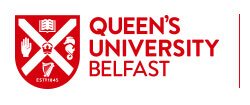Sophia Valente, a Peer Mentor and final year student in International Politics and Conflict Studies, reflects on recent documentary discussions that were held as part of HAPP’s Winter Programme.
As part of the HAPP Winter Programme, I had the privilege to take part in the documentary discussions that ran from the 13th to the 15th of January. Peer Mentors (including myself) had the opportunity to chair the discussions and participate where possible. I first participated in Monday’s discussion of the documentary ‘13th’, which focused on the mass incarceration and systemic discrimination of African Americans in the United States. The discussion involved contributions from a range of HAPP disciplines, giving insight to perspectives beyond my own political focus.
The most valuable part of the ‘13th’ discussion, for me, was focused on what the documentary had taught us. Even though we came from such a range of ages, subject areas, and education levels, it seemed that all of us had learned a lot from the film. There was some agreement that what many of us had not been aware of was the extent to which policymaking in the US is influenced by private companies. The effect this has on mass incarceration is striking, and it was surprising to all of us how much we didn’t know about these systems in place. The documentary, though focused on the 13th amendment of the US Constitution, brought to light the link between Reagan’s War on Drugs and the mass incarceration of African Americans as well as the disproportionately large prison population in the United States. Wednesday’s discussion and documentary were eye-opening and thought-provoking, and very enjoyable overall.
The following day we discussed the documentary ‘The White Helmets’, which focuses on the lives and experiences of volunteers in Syria who risk their lives to save others who have become trapped under rubble or injured in any other way due to bombings occurring in the Syrian Civil War. Thanks to the contributions from anthropology PhD researcher Chrysi Kyratsou, this discussion had a largely anthropological focus, which was refreshing to an International Politics and Conflict Studies student such as myself. The contributions made by other participants were also insightful and represented the other HAPP disciplines to provide a well-rounded discussion.
The documentary itself takes viewers through some of the experiences of actual white helmets. The emphasis is on the impact conflict and war has on civilians, the lives lost, and the enduring hope for eventual peace. The film is inspirational. The white helmets don’t care who they’re rescuing. Their age, occupation, political leaning, and involvement in the conflict, is all irrelevant to saving lives. While we can learn a lot about the Syrian Civil War from this documentary, we can also learn a lot about human nature, hope, and solidarity. These topics proved to be significant to Thursday’s discussion.
Highlights of the conversation were related to the way we understand partiality, subjectivity, and solidarity in the context of the conflict in Syria as well as conflicts as a whole. We also discussed questions of how we understand conflict, humanitarian intervention, and peacebuilding, with inevitable links to Northern Ireland and the peacebuilding process here. I think it’s safe to say that we all learned something from these discussions and were able to better understand our own perspectives as well.
With limited face-to-face learning, it can be difficult to interact with HAPP students from disciplines other than our own. These discussions have certainly proven the value of multidisciplinary approaches to learning. It can also be difficult to have the opportunity to interact with students outside of teaching hours. Not only were these discussions a valuable learning experience, but it was lovely to bring people together in a virtual setting beyond the online tutorials we attend as part of our studies. A year ago, I think we all would have doubted the possibility of meeting new people in such a virtual environment, but the documentary discussions have proven what I would have considered impossible. There is this kind of possibility in the environment of virtual lectures and tutorials, which can otherwise feel bleak from time to time.
Finally, I would like to urge whoever reads this to take part in the virtual activities that HAPP is organising in the near future. There will be wellbeing sessions to help with stress and sleep, a quiz, and movie nights. Peer mentors like myself will be attending events such as these, so to any first years, in addition to reaching us by email you can also reach out by attending these virtual events. I personally look forward to the upcoming events and getting to know those who attend.
